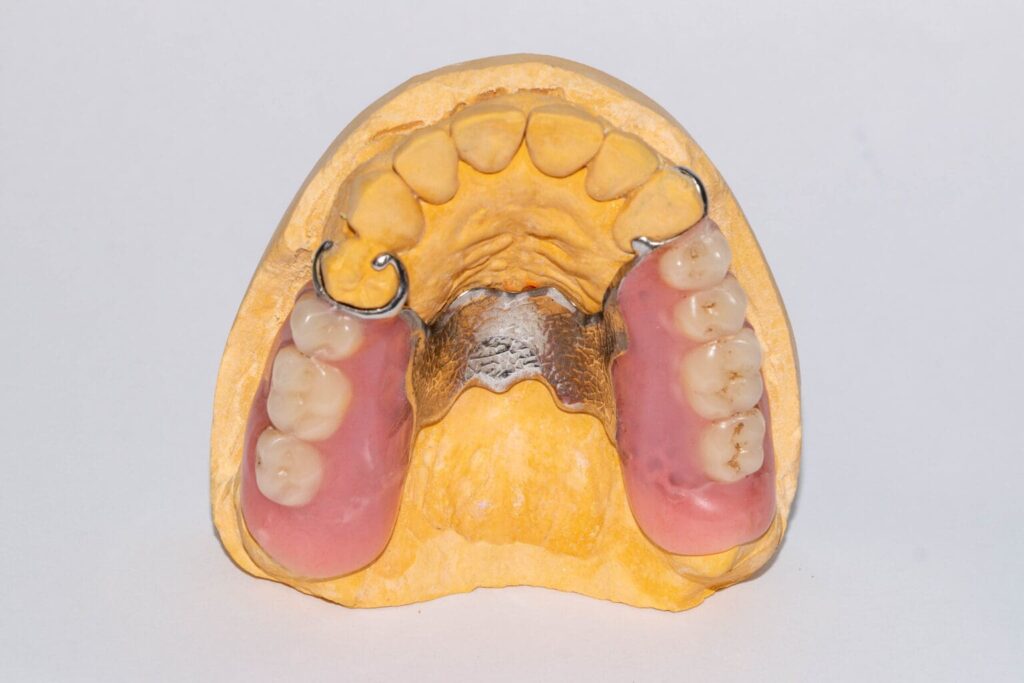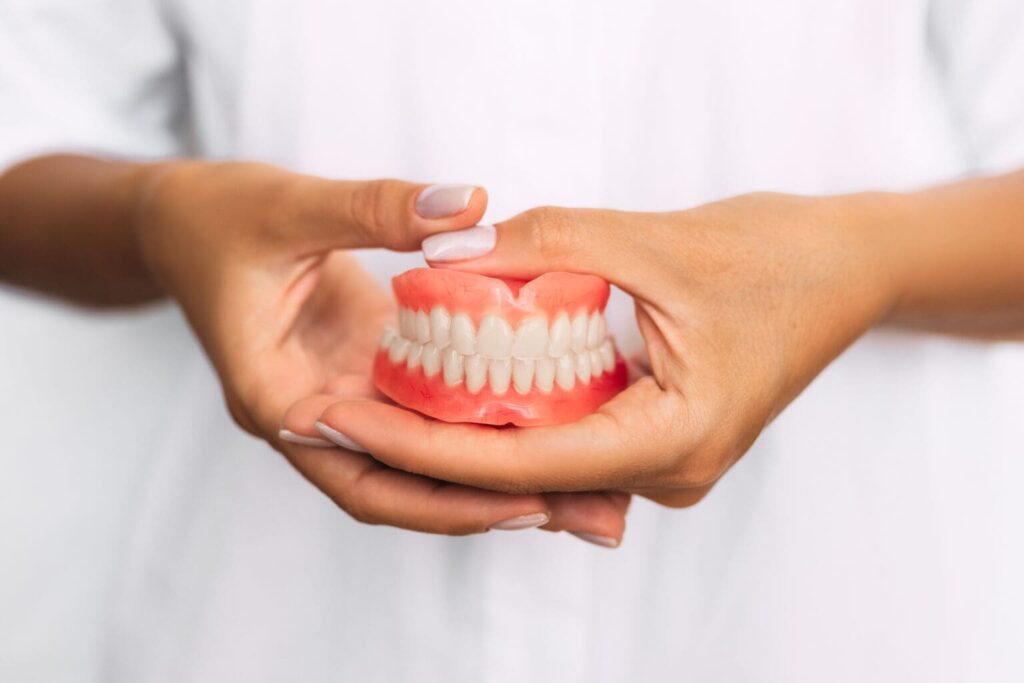Removable Prosthesis
- Home
- Removable Prosthesis
Removable Chrome Cobalt Denture
Chrome cobalt dentures are a type of denture that offers superior strength and durability compared to traditional acrylic dentures. These dentures are made from a combination of chromium, cobalt, and other metals, which are carefully crafted to create a precise and comfortable fit for the patient. The chrome cobalt dentures are custom-made to fit the patient’s individual needs, and they can be adjusted easily if needed. They also have a natural-looking finish that can enhance the patient’s appearance and self-confidence. Additionally, they are resistant to stains and odors, making them easy to clean and maintain. With their long-lasting quality and comfort, chrome cobalt dentures are an excellent option for those seeking a reliable and comfortable solution for their dental needs.

Valplast Denture
Valplast dentures are a revolutionary option for individuals seeking a comfortable, durable, and aesthetically pleasing replacement for missing teeth. Made of a flexible, lightweight material, Valplast dentures are designed to conform perfectly to the contours of the wearer’s mouth, providing unmatched comfort and ease of use. Unlike traditional dentures that tend to be bulky and heavy, Valplast dentures are virtually unbreakable and can last for many years with proper care. They are also customizable with a variety of color options that can match the natural color of your teeth, ensuring a seamless fit that looks like your own teeth. With Valplast dentures, you can enjoy a renewed sense of confidence knowing that your smile looks great and functions just like natural teeth.
Acrylic Denture
Acrylic dentures are a popular dental solution that provides a solution for people dealing with missing teeth. They are made up of high-quality acrylic material that is known for its durability and natural tooth-like appearance. Acrylic dentures are custom-designed to fit comfortably in your mouth and are easy to maintain. They are an ideal choice for anyone looking for an affordable and non-invasive way to restore their smile and improve their oral health. With acrylic dentures, you can enjoy a beautiful smile, eat your favorite foods, and speak confidently without worrying about your teeth slipping or falling out. Whether you need a partial or full denture, our acrylic dentures are a safe and reliable solution that will give you the smile you’ve always wanted.

Essential Tips for Caring for Your Dentures
Dentures play a crucial role in restoring your smile and improving your ability to chew and speak confidently. To ensure the longevity and functionality of your dentures, it is important to take proper care of them. Regular maintenance and good oral hygiene practices can help prevent damage, discomfort, and maintain their optimal condition. In this article, we will provide you with essential tips to help you take care of your dentures effectively.
1. Handle Dentures with Care:
When handling your dentures, it’s important to be gentle to avoid any accidental drops or damage. Stand over a folded towel or a sink filled with water while handling them to prevent breakage in case they slip from your hands. Avoid using excessive force or bending the plastic or metal components.
2. Clean Dentures Regularly:
Clean your dentures thoroughly every day to remove food particles, plaque, and bacteria. Rinse them with warm water after eating to remove loose debris. Brush them gently using a soft-bristle toothbrush or a denture brush specifically designed for cleaning dentures. Avoid using regular toothpaste, as it can be abrasive and damage the denture surface.
3. Soak Dentures Overnight:
Dentures need to stay moist to maintain their shape and prevent them from drying out. Soaking them in a denture cleanser or a mild denture soaking solution overnight is recommended. Follow the instructions provided with the product and avoid using hot water, which can cause warping.
4. Practice Good Oral Hygiene:
Even though you have dentures, it is crucial to maintain good oral hygiene for your remaining natural teeth, gums, and tongue. Brush your gums, tongue, and any remaining teeth gently with a soft-bristle toothbrush before inserting your dentures in the morning. This helps remove plaque and stimulates circulation in the oral tissues.
5. Visit Your Dentist Regularly:
Regular dental check-ups are important even if you have dentures. Your dentist will examine your mouth, dentures, and oral tissues to ensure everything is in good condition. They will also make any necessary adjustments to ensure a comfortable fit. If your dentures become loose or uncomfortable, don’t attempt to adjust them yourself; seek professional assistance.
6. Avoid Damaging Habits:
Certain habits can damage your dentures or compromise their fit. Avoid biting on hard or sticky foods, as they can cause denture fractures or dislodgement. Similarly, refrain from using your dentures as tools to open bottles or packages
